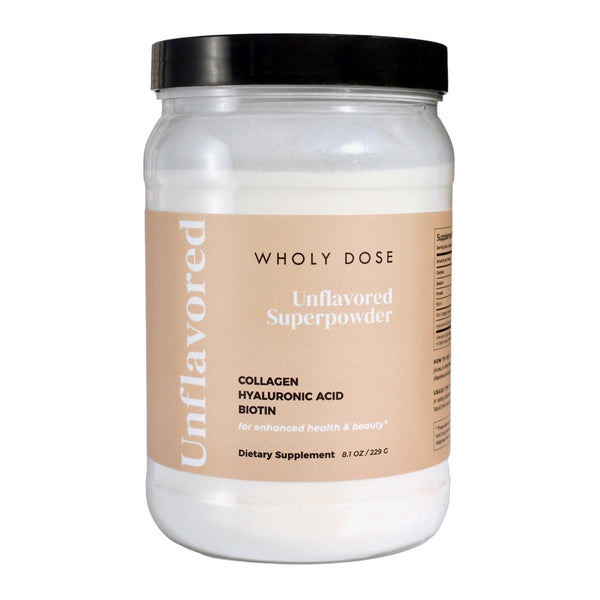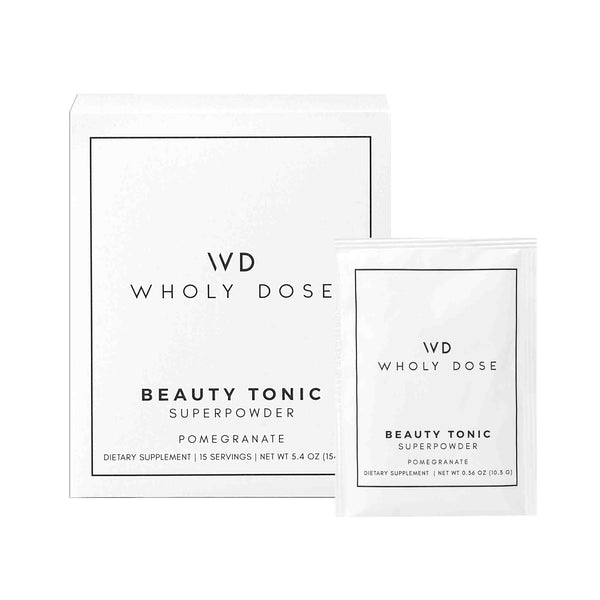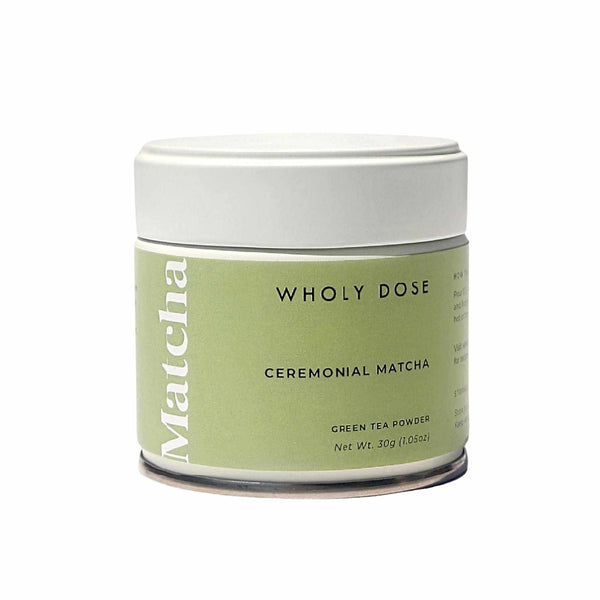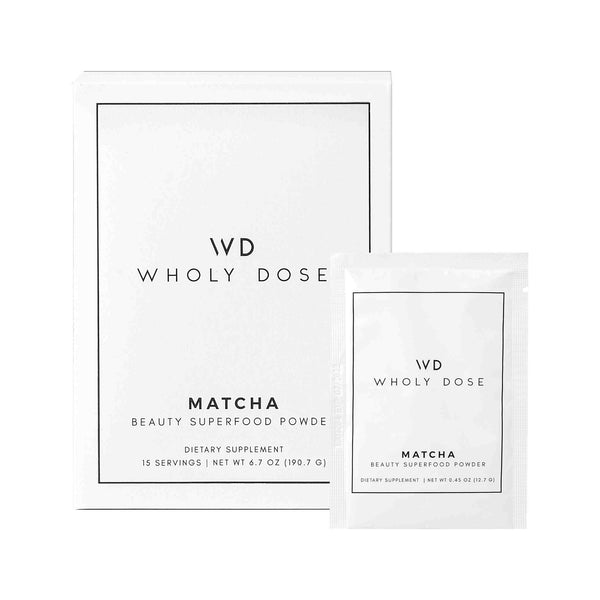
What Is Collagen?
Collagen is the most abundant protein in your body. These proteins make up the main structure of your connective tissues, such as your skin and cartilage, according to Yale University.
Altogether, collagen makes up about a third of the protein in your body, more than any other type of protein in the body. Based on it’s amino acid composition, collagen is categorized into a total of 28 different types of collagen in the body.
Roughly 90% of collagen in the body is collagen type 1, which is found in the tendons, internal organs, and organic parts of bones. The remaining collagen in the body falls into these types:
– Collagen Type 2: Found in cartilage
– Collagen Type 3: Found in lymphoid tissues and bone marrow
– Collagen Type 4: Found in the thin layer of skin between the dermis and the epidermis, called the basement membrane
– Collagen Type 5: Found on the surface of cells and in hair
With all these different collagen types, just know that you can take any type of collagen supplement (types I, II, III, etc.) while still getting benefits in your hair, skin, nails, bones, joints, muscles, and health.
Where Does Collagen Come From?
Collagen can be found both inside and outside of the body. Inside the body, collagen is naturally created by breaking down protein into amino acids. Amino acids build protein in your body including collagen.
Collagen is produced inside your body, but can have effects outside of your body including improving skin health, reducing wrinkles, and strengthening hair and nails.
You can take collagen supplements to replenish levels inside of the body. Collagen supplements are made from connective tissue and bones of animals, which are broken down into smaller components so you can digest it – also known as “hydrolyzed collagen”.
Bone broth is another form of collagen, which is made by simmering the bones and connective tissue of animals into a nutritious stock.
Foods high in vitamin C help stimulate collagen production, such as broccoli, kale, berries, and citrus.
According to the Cleveland Clinic, a diet that includes a large variety of fresh fruit and vegetables also boosts your intake of antioxidants. This further protects the body from oxidative stress that deteriorates collagen in the body at an increased rate.
Though the body’s ability to naturally produce collagen decreases starting in our twenties (20’s), factors like excessive sun exposure, smoking, and a poor diet can also lessen the body’s ability to produce collagen – hence, speeding up the aging process.
Collagen As A Medical Treatment
Arthritis is experienced in the body when collagen in joints begins to break down at a faster rate than it can be produced. This results in joint pain and decreased mobility. Though scientists have been experimenting with collagen for treating arthritis since the 1980s, Brooke Russell, a microbiologist and professor at the Texas A&M Institute of Biosciences and Technology in Houston, says this method of collagen treatment hasn’t always been effective.
A 2017 study published in the Journal of Arthritis found that ingestible collagen supplements resulted in joint pain relief for patients with osteoarthritis. Similarly, a 2016 study published by the Nutrition Journal also found the same results with supplementing collagen resulting in relief for osteoarthritis patients.
While neither method promises to regrow collagen in the joints to entirely reverse arthritis, both methods of surgically inserting collagen into arthritic joints and supplementing with collagen have been found to be effective treatments for joint pain relief and various cases of arthritis.
Despite these more recent studies, collagen has been used as a successful treatment of healing wounds for over 2,000 years by being applied topically with other antibiotics to promote healing.
A 2014 review found that topical collagen, when applied with a sponge or gel, may be used as a treatment for cases of severe burns. The sponge helps the skin maintain it’s moisture while further protecting it from infections and the collagen acts as a healing agent for the regeneration of new cells in the wound.
Should You Take A Collagen Supplement?
In recent years, collagen has become more popular as an essential ingredient in dietary supplements and topical creams for its health and beauty boosting benefits.
With more clinical studies being published on the effects of taking collagen supplements, studies show positive results in skin, hair, and nail health – as well as immune, gut, joint, bone, and muscle health.
Unlike a topical treatment, taking collagen supplements have been proven to do more than just heal wounds. The benefits from taking collagen supplements for both your health and your appearance include:
– Improve skin health
– Reduce wrinkles and fine lines
– Provide relief from joint pain
– Prevent bone loss
– Boost muscle mass
– Increase hair and nail strength
– Improve gut and brain health
– Aid in weight loss
How To Find The Best Collagen Supplement Brand & Products
When taking a collagen supplement, it’s important to be aware of where it comes from and what ingredients are included in the supplement – some collagen supplements contain added sugar and fillers. With the popularization of collagen supplements, be sure to read the label or website’s list of ingredients before purchasing.
Collagen supplements of premium quality go through a process in which the structure of collagen is broken down into smaller chains of amino acids called peptides, and do not contain any added sugar or fillers. A carefully controlled process of hydrolyzed collagen makes it easier for the body to absorb and digest.
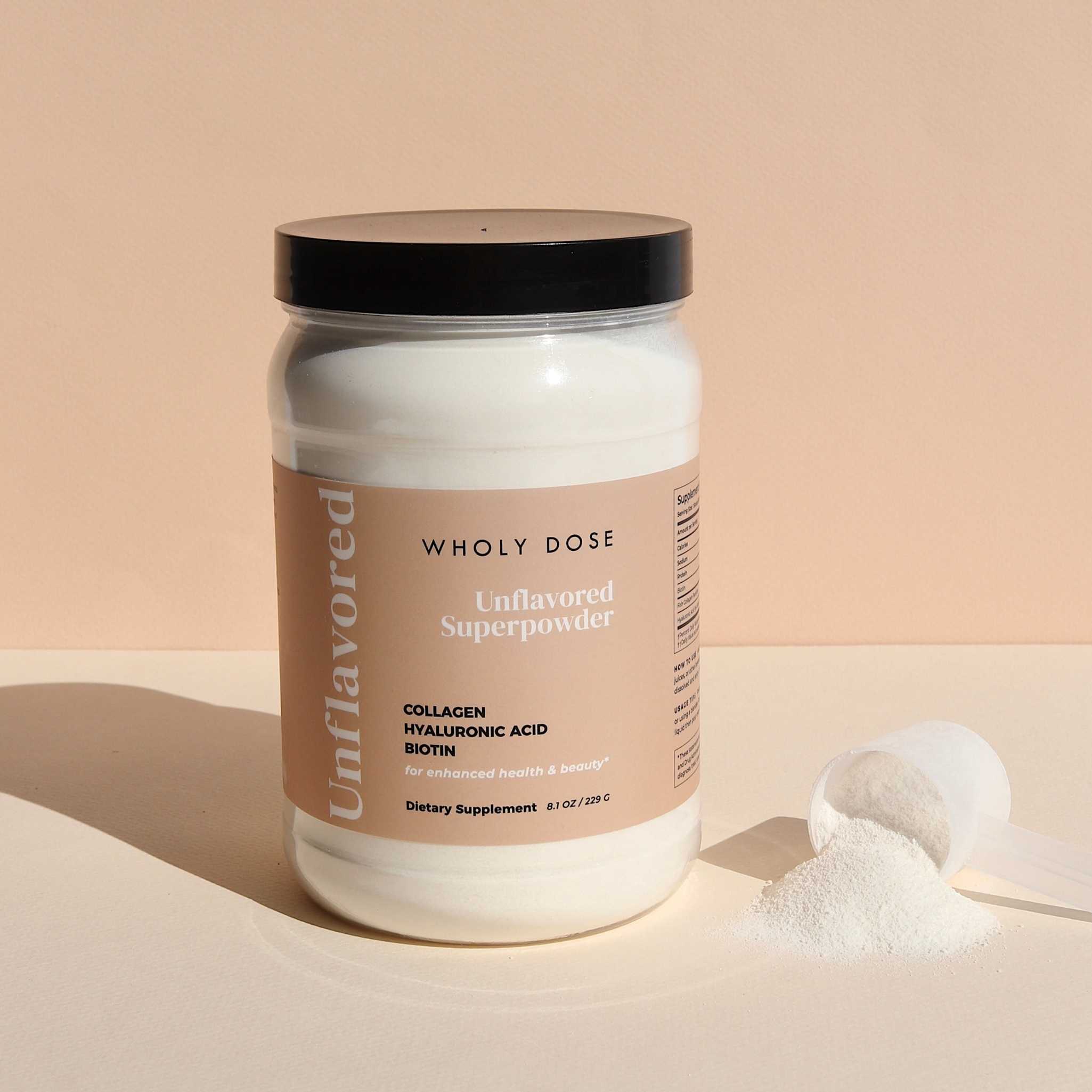
PREMIUM MARINE COLLAGEN SUPPLEMENTS & VITAMINS
COLLAGEN FOR BETTER BEAUTY & HEALTH
Other Things To Know When Taking Collagen Supplements
When considering taking a collagen supplement, it is important to take into account how your diet and lifestyle may affect collagen production in your body.
Lifestyle factors that hurt your collagen production are:
– Smoking
– Excessive sun exposure
– Not getting enough sleep
– Excessive sugar and processed foods intake
An easy way to combat against the decrease of collagen production that comes with age and any lifestyles factor is through supplementation. Collagen peptides powders can be added into any lifestyle and help boost the body's level of collagen production. Just be sure to maintain a healthy diet, get enough sleep, and use sunscreen every day in addition to your collagen routine.

